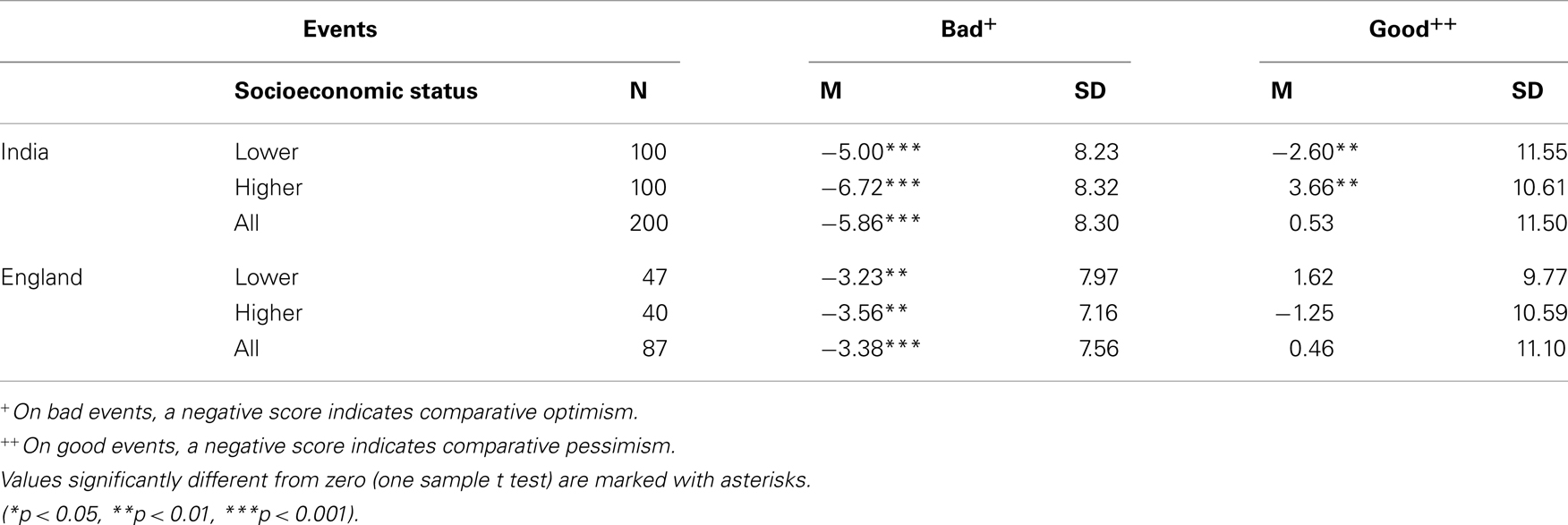

However, just because optimism biases may have offered fitness advantages in our evolutionary past does not mean that they are always optimal. Natural selection could favor overconfidence if its benefits, such as psychological resilience, outweigh its costs. Unrealistic optimism occurs when individuals falsely believe that their personal outcomes will be more favorable than others' in the same risk category. predicting future financial success) Optimism Bias People are inherently optimistic (unrealistic optimism) Belief that oneself has lower risk to experience bad stuff than others Likewise, belief that oneself is more likely to experience good stuff than others Conclusions: Optimism is an individual differences dimensions (i.e trait) the plays a role for health and relationship outcomes Optimism bias occurs generally: Overestimation of likelihood to experience positive events underestimation of negative events likelihood Rooted in human brain structure Studies: How unrealistic optimism is maintained in the face of reality – Sharot et al.Risk perception and consequently engagement in behaviors to avoid illness often do not match actual risk of infection, morbidity, and mortality. Across studies, correlations range from 0.1 to 0.3 – It explains 10% to 15% of differences in likelihood to develop health problems Optimism reduces risk of cardiovascular disease, stroke, depression and cancer Optimism is also linked with life satisfaction, positive/ negative affects and resilience There are few studies that do not look at the relationship between optimism and health (e.g.


O Example: o Limitations: o Self reporting Predictive Validity: Optimism if often associated with health outcomes.

o 6 positive and 6 negative events – asks the respondents for possible cause of event & rate the internality, stability and globality of the event (1982) based on the explanatory style definition of optimism o Self reporting and the test taker has to write down one major cause of each event and then rate for each three causal dimensions. Personality Review Optimism Defining Optimism: Comes from the Latin word “optimum” meaning “best” Being optimistic means expecting the best possible outcome from any given situations o The way you think about setbacks (Temporary, I can change it) and victories (I did and this is going to help me in every circumstance) Can be seen as a trait but also a way of explaining life events Contrasts: Pessimism, idealism, realism o Idealism – Mentally constructed philosophy about reality o Realism – Reality is ontologically independent of our conceptual schemes Assessments of Optimism Life Orientation Test (LOT) o Background: o Designed by Scheier and Carver in 1985 o Assesses individual differences in generalized optimism versus pessimism o Has been used to research behavioral, affective and health consequences of optimism o How it works: o 8 items and 4 filler items o 4 items positively and 4 negatively worded items o Self reporting -> explicit measure of optimism o Examples: Positive: “In uncertain times, I usually expect the best.” Filler: “It’s easy for me to relax.” Negative “I hardly ever expect things to go my way.” o Limitations: o Very brief – does not consider all factors o Self reporting measure Attributional Style Questionnaire o Background o By Peterson et al.


 0 kommentar(er)
0 kommentar(er)
